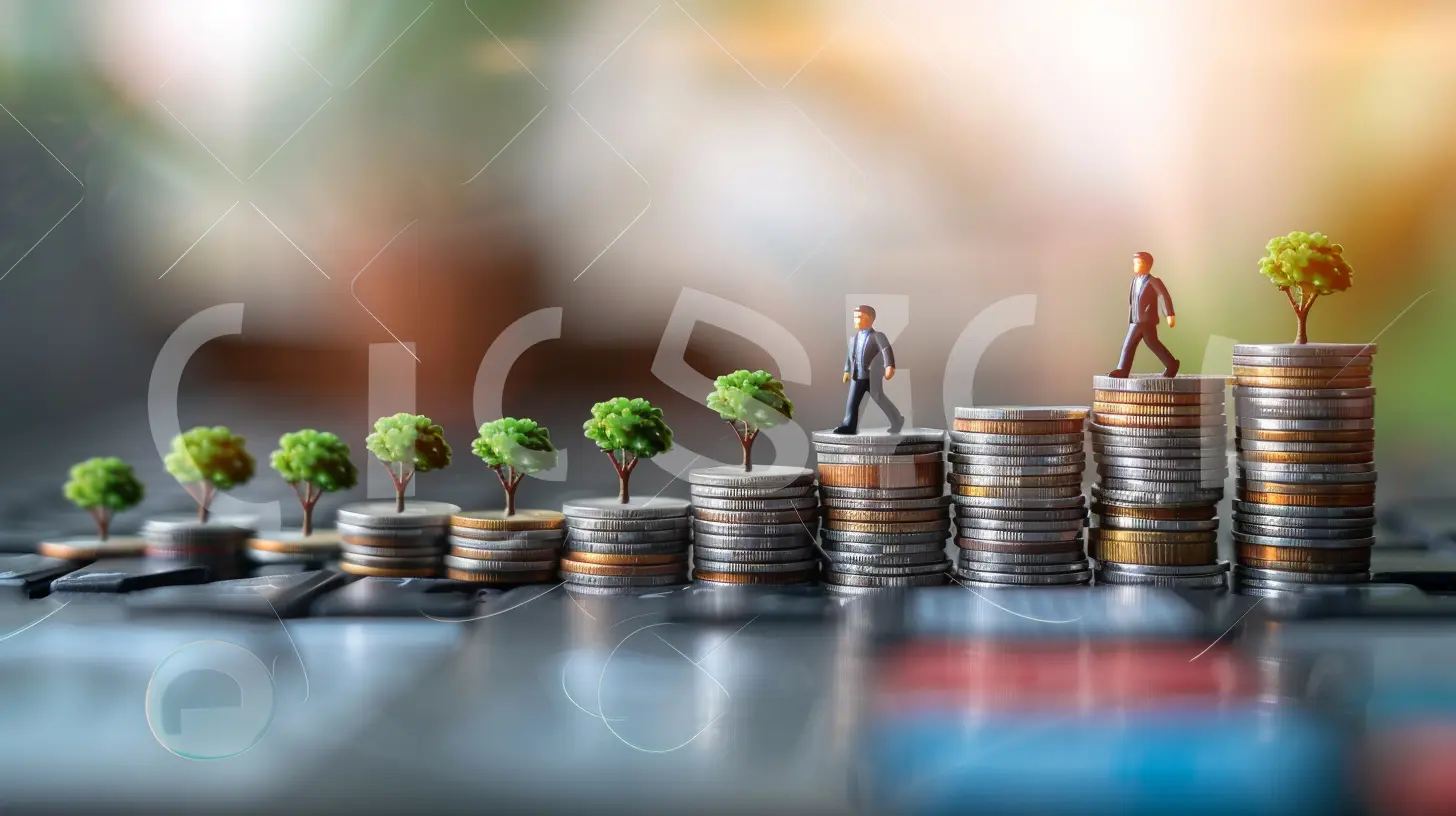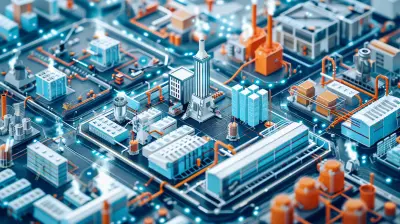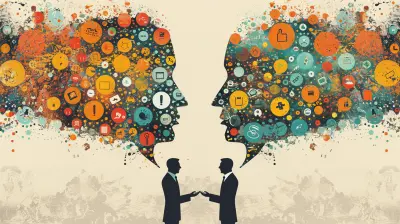The Role of Education in Driving Future Economic Growth
13 September 2025
Let’s face it—our world is changing faster than ever. We’re talking about AI booming, remote work becoming the norm, and industries shifting gears in ways we couldn’t have imagined a decade ago. But there’s one constant that continues to be a major player in shaping a country’s economic future: education.
Now, education isn’t just about textbooks and standardized tests. It’s the seedbed of innovation, the backbone of skilled labor, and the compass for entrepreneurship. In other words, it’s the gas in the engine of economic growth. So, how exactly does education drive future economies forward? Grab your coffee, and let’s dive deep into it.
Why Education Matters More Than Ever
You might be thinking, “Is education that big of a deal when the internet can teach me anything?” Well, yes—and no. While Google answers are handy, structured, high-quality education builds foundational skills, sharpens critical thinking, and fosters creative problem-solving.Put simply, education equips people not just to read the manual, but to write the manual.
And when more people have those tools, the economy doesn’t just grow—it transforms.
Education as an Economic Multiplier
Here’s the thing: education is an investment, not a cost. And like any good investment, it brings returns.When people are educated, they’re more likely to:
- Earn higher wages
- Start businesses
- Innovate within their industries
- Create jobs for others
Each of those actions has a ripple effect. For example, a well-educated workforce attracts global companies. And those companies? They spend money, build infrastructure, and pay taxes. See where this is going?
The Human Capital Factor
Economists have a term that sounds fancy—“human capital.” But it’s really just the blend of people's knowledge, skills, and experience. Education feeds human capital. A country rich in it becomes a magnet for investment and innovation.Think about the tech boom in places like Silicon Valley. It didn’t happen by accident. It happened because of a strong pipeline of educated, tech-savvy people from nearby universities and beyond.
The Link Between Education and Workforce Readiness
Let's talk jobs for a sec. The modern workplace is not what it used to be. Automation and AI are replacing repetitive tasks, and jobs now require more complex problem-solving and digital literacy.So what's the golden ticket to stay employable? You guessed it—education.
Skill Gaps Are Real
Businesses across the globe are facing a common issue: they have jobs but not enough qualified people to fill them. This “skills gap” slows down productivity and innovation. Education bridges this gap by aligning learning outcomes with workplace needs.But we’re not just talking about college degrees. Vocational training, certifications, and lifelong learning all play huge roles. Education in all forms matters.
Fostering Innovation and Entrepreneurship
Now let’s address the big E-word—entrepreneurship.Entrepreneurs are the risk-takers, the changemakers, and often the job creators. Education nurtures this spirit by:
- Teaching critical thinking
- Encouraging creativity
- Building confidence
- Offering knowledge about markets, finance, and management
When people understand how to turn ideas into reality, economies benefit. From small coffee shops to big tech startups, educated entrepreneurs build wealth not just for themselves, but for their communities.
Gender Equality in Education = Stronger Economies
There’s another angle to this story—equal access to education. When girls and women receive the same educational opportunities as boys and men, everyone's better off.Studies show that closing the gender education gap can significantly increase a country's GDP. When women are educated, they're more likely to:
- Join the workforce
- Earn higher incomes
- Invest in their children’s education (hello, generational progress!)
It’s a win-win for families and economies.
Education’s Role in Reducing Poverty
Here’s a bold statement that's backed by data: education is one of the most powerful tools we have to break the poverty cycle.Every additional year of schooling can increase a person’s income by about 10%. Multiply that by millions of people, and you’ve got a serious economic uplift.
And it’s not just about income. Education opens up new ways of thinking, making it easier for people to adapt, find opportunities, and improve their quality of life.
Lifelong Learning = Lifelong Earning
Let’s get real—learning doesn’t stop at graduation. Lifelong learning is the name of the game now. Technology moves fast, and if your skills don’t keep up, you could get left behind.That’s why countries with strong systems for adult education and upskilling have an edge. They’re more adaptable, more resilient, and quicker to bounce back from economic shocks.
Think of it like this: economies that keep learning, keep earning.
The Power of Public Investment in Education
Government spending on education is one of the smartest bets a country can make. It’s not just about building schools—it’s about building futures.Public investment in education leads to:
- Stronger infrastructure
- Better teacher training
- More equitable access
- Improved curriculum linked to real-world skills
And the payoff? A more dynamic, inclusive, and forward-thinking economy.
Technology + Education = Economic Rocket Fuel
Here’s where things get especially interesting—tech is transforming education, making it more accessible, affordable, and engaging.Online platforms, e-learning tools, and virtual classrooms are opening doors for millions worldwide. This democratization of education empowers people in remote areas, gig workers, stay-at-home parents—you name it.
So what happens when more people can get educated without the usual barriers? You guessed it. The talent pool grows, and so does the economy.
Real-Life Examples: Where Education Fuels Growth
Still need convincing? Let’s look at some proof.Finland
Despite its small size, Finland consistently ranks high in education and innovation. Their secret? A well-funded, student-focused education system. And guess what—they’ve got a thriving tech and startup scene to show for it.South Korea
In just a few decades, South Korea transformed from a war-torn economy to a global tech leader. How? Massive investment in education. Today, it’s home to giants like Samsung and Hyundai.Rwanda
Even in poorer nations, education is lifting people out of poverty. Rwanda has made huge strides in literacy and female education post-genocide and is now emerging as a tech hub in Africa.The Bottom Line: No Education, No Growth
If there’s one takeaway from this article, it’s this: education isn’t optional if we want to build stronger economies. It’s the cornerstone of innovation, employment, equality, and progress.So whether you’re a policymaker, business leader, educator, or just someone passionate about the future—it all starts with education.
Want a smarter, wealthier, more stable world?
Start by opening a book.
Final Thoughts: What Can We Do Today?
We’ve unpacked a lot, but what now? Here are a few quick ideas:- Push for better education funding in your community
- Support adult learning and upskilling programs
- Encourage girls and marginalized groups to pursue education
- Promote vocational training alongside traditional academics
- Embrace online learning and tech-based education
Every little effort counts. Because the future economy isn’t waiting—it’s already knocking.
all images in this post were generated using AI tools
Category:
Economic TrendsAuthor:

Rosa Gilbert
Discussion
rate this article
1 comments
Phoenix Lee
Education is the cornerstone of a thriving economy. By investing in knowledge and skills, we empower individuals to innovate and drive progress. As we prioritize learning, we unlock potential and create a brighter future for all. Let's champion education and fuel the growth that transforms our communities and economies!
September 20, 2025 at 4:47 AM

Rosa Gilbert
Absolutely! Education is essential for economic growth, fostering innovation and empowering individuals to contribute meaningfully to society. Investing in learning is key to unlocking potential and driving progress.


